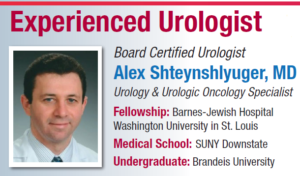Hepatitis Testing as Part of STD Testing
If you have any questions, to schedule a consultation, please contact us or call/text: 1-646-663-4125.
What is Hepatitis? What Are The Symptoms?
What is Hepatitis?
Hepatitis is an inflammation of the liver. The most common cause of this disease is a viral infection. Other possible causes include exposure to toxic substances, such as certain drugs or alcohol. The condition can also be autoimmune in origin (the immune system is overactive and attacks the body’s own tissues). Hepatitis can be self-limited, or it may progress to fibrosis (scarring), cirrhosis, liver failure, and in some cases to liver cancer.
Infectious Hepatitis Type A, B, and C: What Is The Difference?
There are five unique types of hepatitis viruses that have been labeled A, B, C, D, and E. All the hepatitis viruses cause liver disease, but their mode of transmission and their effect on the liver is different. The burden of illness and death caused by the different subtypes also varies.
Hepatitis B and C are the most common causes of liver cirrhosis and cancer.
Safe and effective vaccines are available to prevent hepatitis A and B. There is no vaccine for hepatitis C. The vaccine for type B protects against infection with type D. There is a vaccine for type E but it is not widely available.
Where to Get Tested for Hepatitis in NYC?
At New York Urology Specialists, we offer same-day hepatitis treatment for men and women.
We also perform comprehensive STD testing for other infections. We offer confidential appointments. Our prices are affordable with or without insurance. Call/text today: 1-646-663-4125 or make an appointment online.
Hepatitis Virus Mode of Transmission: How Does Hepatitis Spread?
Hepatitis A virus (HAV) is present in the feces and spreads through contaminated food and water in areas with poor sanitation. It can also spread through certain sexual practices. HAV infection can range from mild and self-limited to severe and life-threatening.
Hepatitis B virus (HBV) spreads through exposure to infected blood, semen, vaginal secretions, saliva, and other body fluids.
Therefore, HBV is sexually transmitted and can spread through oral, vaginal and anal heterosexual or homosexual sex. It can also be transmitted from an infected mother to her baby at the time of childbirth.
Contaminated blood and blood products, injections, and IV drug use are other methods of HBV transmission. Healthcare workers are at risk of accidental HBV infection due to needlesticks. The virus does NOT spread through touching, hugging, kissing, holding hands, sharing utensils, coughing or sneezing. Unlike HAV and HEV, types B and C hepatitis viruses do NOT spread through food or water.
Hepatitis C virus (HCV) transmission is similar to HBV through exposure to infected blood or injections during medical procedures. Sexual transmission is possible but less common. The risk of sexual transmission is higher in people with multiple partners, people with other STDs, and HIV-positive individuals. Contact with an infected person’s blood through a toothbrush or razor may also spread HCV infection. Body piercings or tattoos performed in unregulated and unhygienic settings can lead to the transmission of HCV.
Hepatitis D virus (HDV) occurs in only people with HBV infection. Dual infection with virus types B and D is associated with more serious symptoms and complications and poorer outcomes.
Hepatitis E virus (HEV) transmission is through contaminated food and water, and this infection is common in developing countries.
Testing for Hepatitis B
Testing for HBV requires only one sample of blood, but the test consists of three parts. The three results are necessary to help doctors understand completely whether a person is infected or not.
A positive test for the HBV surface antigen indicates an infection with HBV. Further testing is needed to determine if the infection is acute (relatively new) or chronic (longstanding). The second part is a test for the HBV surface antibody.
A positive result indicates that the person is protected against the virus. A positive test for HBV surface antibody could be as a result of vaccination or past infection. Blood bank screenings do not routinely perform this part of the test. If a person tests positive for the surface antibody, he or she is immune and protected against the HBV and cannot be infected or spread the infection to others. The third part of the test is for the HBV core antibody. A positive or reactive test indicates past or current infection.
At New York Urology Specialists, we offer comprehensive hepatitis testing. Our board-certified urologists can talk to you about the appropriate STD testing for you and your partner and give you a complete explanation of your HBV status.
Testing for Hepatitis C
A blood test can identify infection with the type C virus. If the initial test is positive, further testing may be recommended to measure the viral load (quantity of virus in the blood) and identify the subtype of the virus. Also, testing for liver damage may be recommended with blood tests, transient elastography (a type of ultrasound), or liver biopsy.
Symptoms of Hepatitis B/C
Acute infection with the hepatitis virus may result in minimal to no symptoms. Some people may experience symptoms such as jaundice (yellowing of the eyes and skin), dark-colored urine, fatigue, nausea, vomiting, and abdominal pain. Whereas HAV infection is usually short-term and self-limited, infection with HBV and HCV can cause lifelong infection.
Dangers of Untreated Hepatitis B/C
Chronic untreated hepatitis B/C can cause serious health complications, including liver damage, scarring of the liver (cirrhosis), liver cancer, and even death. About 75%-85% of people who are exposed to HBV and HCV go on to develop chronic infections [1].
Treatment Options for Hepatitis B
If a person is exposed to the hepatitis B virus and has not been vaccinated, an injection of antibodies (immunoglobulins) within 12 hours of exposure may protect against the disease. This treatment offers short-term protection, and vaccination is still recommended for the long-term.
Acute HBV infection may be treated simply with rest, nutrition, and plenty of fluids to allow the body to fight off the virus. Antiviral medications may be prescribed. A hospital stay may be necessary for people with complications.
Chronic HBV infection requires long-term treatment, usually for the rest of the person’s life. This reduces the risk of complications and transmission of the virus to others. Treatment options for chronic hepatitis B include antiviral drugs such as Viread (tenofovir), Baraclude (entecavir), and Epivir (lamivudine). Another option is interferon injections, which are used mainly in young people who wish to avoid long-term therapy. In people with severe liver damage due to hepatitis B infection, a liver transplant may be necessary.
Experienced physicians at New York Urology Specialists can prescribe the appropriate HBV treatment for you. Call us today to make an appointment.
Treatment Options for Hepatitis C
There is no one treatment that works for everyone. The therapy is decided on a case-to-case basis. Antiviral drugs for HCV have made it a largely curable disease [2]. A combination of interferons and antiviral medications such as ribavirin may be prescribed. Patients who are cured of HCV infection experience several health benefits, including decreased liver inflammation, lowering of liver enzyme levels, and slowed progression of liver fibrosis. Delaying treatment can decrease the effectiveness and benefits of treatment. Also, successfully treated persons no longer transmit the virus to others. Talk to the board-certified urologists at New York Urology Specialists today for up-to-date information on hepatitis diagnosis and treatment.
Do I Need Hepatitis Testing?
Certain individuals are at high risk of HBV or HCV infection and should talk to a urologist about possible screening. These include:
- People with a history of intravenous (IV) or intranasal (snorting, sniffing) illicit drug use.
- Individuals with abnormal liver function tests without an identifiable cause.
- People who have received blood transfusions or organ transplants.
- People who are immunocompromised (due to long-term steroid treatment or medications to prevent organ rejection after transplant).
- Healthcare workers and EMS personnel exposed to accidental needle sticks.
- Babies born to hepatitis positive mothers.
- People who have undergone long-term hemodialysis.
- People who are HIV positive.
- People who have been in prison.
- People with multiple sexual partners.
- Men who have sex with men (annual testing is recommended).
- Sexual partners of people diagnosed with HBV or HCV infection.
How to Prevent Hepatitis B/C Infection?
There are several ways to prevent hepatitis B/C infection and reduce the risk of transmission to others:
- Practice safe sex. Remember, condoms offer some protection but do not completely eliminate the risk.
- Get tested. Both you and your partner should be tested for the different types of hepatitis virus. Knowing your HBV and HCV status can help prevent transmission to sexual partners.
- Never share personal care items such as razors and toothbrushes, which can carry traces of blood.
- Avoid direct contact with blood and body fluids — Wash hands with soap and water after potential exposure.
- Cover all cuts carefully.
- Make sure sterile needles are used for tattoos, piercings, and acupuncture.
- Avoid illegal drug use.
Why Choose New York Urology Specialists for STD Testing and STI Treatment?
- Same-day STD Testing with a comprehensive evaluation and precise DNA and RNA-based testing.
- All treatment is performed by a board-certified urologist experienced in treating men with symptoms of chlamydia, gonorrhea, penile discharge, vaginal discharge, genital itching and other sexual problems using medical therapy, minimally invasive therapies, lasers, and surgery.
- We are one of the few practices in the region to offer a full range of options for the treatment of sexual and erection problems in men.
- We offer diagnostic testing in our office which avoids hospital costs.
- Extensive Experience: Thousands of men and women have been treated successfully for STIs, urethritis including NGU (non-gonococcal urethritis), pelvic pain, prostatitis, and cystitis.
- Confidential and Understanding Care. We understand that most of our patients desire privacy. We see patients with a variety of urological problems. Your reason for visiting us is entirely confidential.
Scheduling Appointments for STI Treatment and STD Testing at New York Urology Specialists
If you have any questions about testing or treatment for sexually transmitted infections (STI), to schedule a consultation, please contact us or call/text: 1-646-663-4125.
We have excellent reviews from patients and their partners.
STDs are Treatable in Nearly Every Man and Woman

Urologists are doctors specializing in the treatment of infections in men and women caused by sexually transmitted diseases as well as bladder infections (UTI). By the virtue of our experience and skill, we are able to offer an effective treatment option for nearly every man and woman with urinary problems and bladder control problems.
We Treat Some of the Most Complex STD Problems Including:
- Persistent urinary urgency
- Frequent recurrence of genital warts
- Frequent recurrence of herpes outbreaks
- HIV prevention
- Genital warts in the urethra
- Treatment of infections when antibiotics do not work well
- Testing for urinary ureaplasma and mycoplasma.
|
If you have any questions, to schedule a consultation, please contact us or call/text: 1-646-663-4125.
We offer affordable, highest-quality urology care with or without insurance. Find out our office hours or directions to our office. We offer weekday, weekend, and evening office hours.






 Schedule an Appointment with Dr. Shteynshlyuger:
Schedule an Appointment with Dr. Shteynshlyuger: